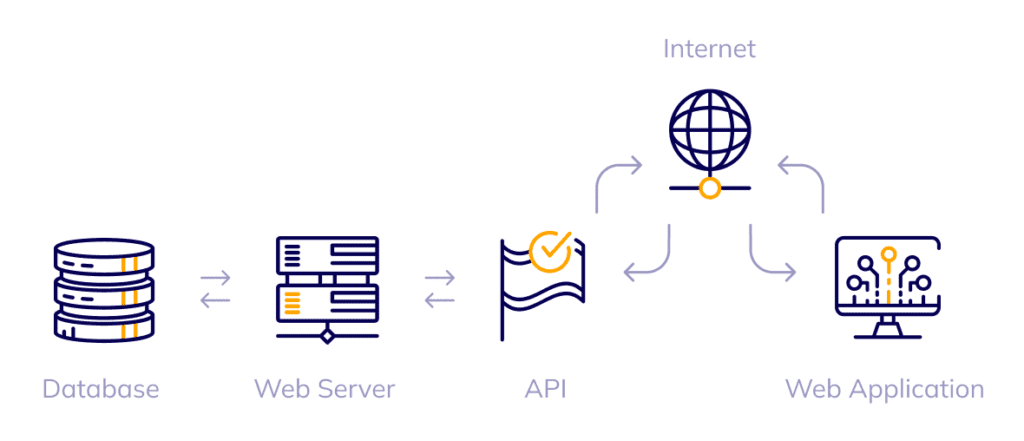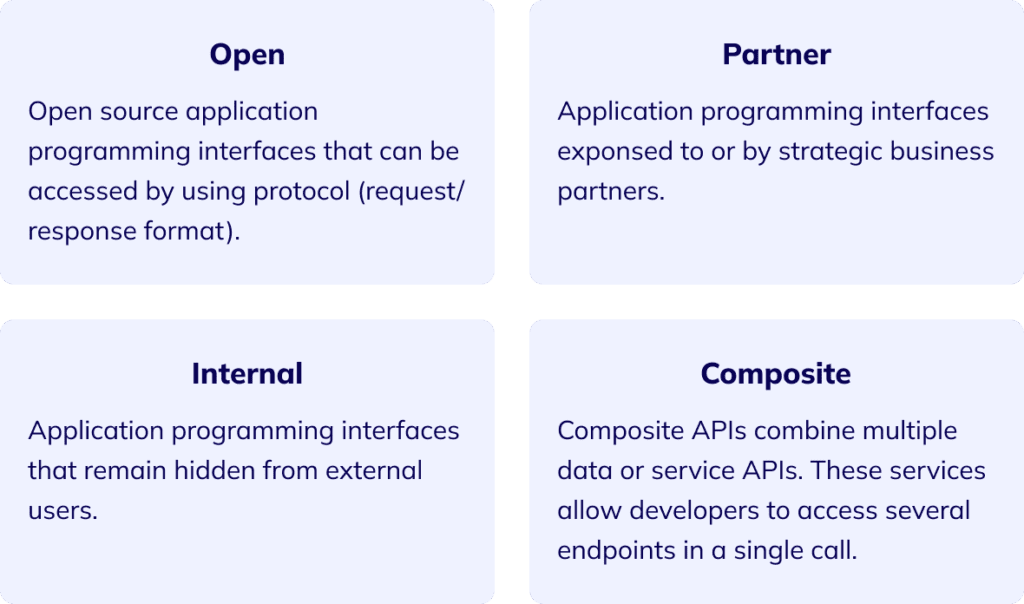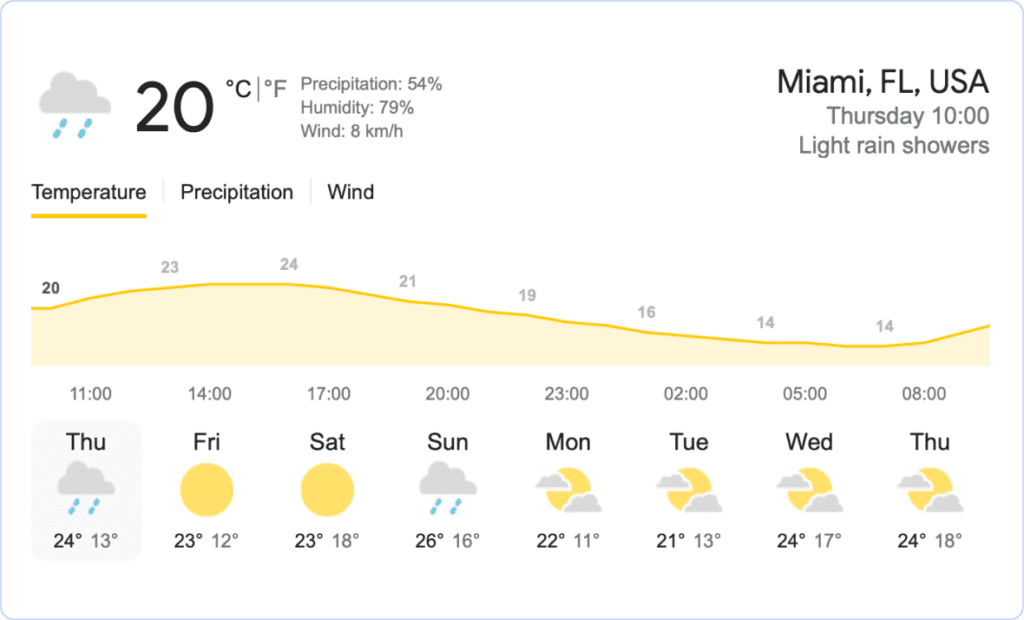TL;DR
- APIs connect applications and define how they communicate, enabling secure, controlled access to data and functions.
- They mediate between app and web server, processing requests, transferring data, and returning responses.
- Types include Open, Partner, Internal, and Composite; protocols span REST, SOAP, RPC, and SERP APIs.
- Everyday uses: weather snippets, social logins, Twitter bots, and travel booking aggregators.
- Flatlogic App Generator automates endpoints, keys, docs, and offers prebuilt APIs for faster integration.
Fact Box
- APIs sit between an application and a web server, processing requests and returning data securely.
- This guide groups APIs into four types: Open, Partner, Internal, and Composite.
- SERP API provides search results programmatically in JSON, RSS, or ATOM formats. Source
- Examples listed: weather snippets, social media logins, Twitter bots, and travel booking apps.
- Flatlogic App Generator auto-creates API endpoints, keys, and docs; offers prebuilt APIs. Source
What is an API
An Application Programming Interface (API) is a gateway that allows one App to communicate with other Apps – and defines how that communication occurs. They foster connections between technologies to improve the user experience. API is a collection of software functions and procedures.
APIs play a crucial role in business software development, facilitating secure and controlled access to resources, thereby enabling seamless integration and interaction between different services through well-defined interfaces.
How API works
APIs enable us to explain how web applications communicate with each other. They process data transfer between systems and locate between the application and the web server. APIs enable access to software (or web data) in a controlled and secure way for the program. Then the code sends requests to the receiving software and returns the data.

APIs can be divided into four main categories based on the functionality they serve.

APIs protocols can be divided into the next categories:
| REST | SOAP | RPC | SERP |
| Representational state transfer protocol provides a communication channel to a distributed set of computers over HTTP. REST APIs are primarily used to access and work with data. | Simple Object Access The protocol is a protocol used to transmit data over networks. Information is encoded using XML. | Remote Procedural Callprotocol is the RPC that uses ]SON and XML. RPC-based APIs are primarily used for procedures or commands. | SERP API is a web service that allows users to programmatically retrieve the search engine results page (SERP). It provides users with access to search results in JSON, RSS, or ATOM format. Integrating a tool like the SERP API can significantly enhance the capabilities of your application by providing real-time data about search engine results |

Examples of APIs we use every day
1. Weather snippets
One of the common examples of API usage is weather data like Google Search.

2. Log in using social media accounts
The second good example of APIs usage is the log-in with Gmail/Facebook/GitHub you may have seen on different websites. Instead of logging in to users’ accounts on social networks (which would be a serious security issue), applications with this functionality use the APIs of these platforms to authenticate the user with each log-in.

3. Twitter Bots
Twitter bots are accounts that automatically make tweets and send direct messages. Behind them are complex Twitter APIs. The Twitter API tells the bots when something specific happens on the platform. For example, you can ask the Twitter API to tell your bot when it gets a new repost. Here are some of the popular Twitter Bots:
- Hundred Zeros (@HundredZeros) – Twitterbot that regularly tweets links to the eBooks that are free on Amazon.
- Earthquake Alerts (@EarthquakeBot) – tweets about any earthquakes with an intensity of 5.0 or greater as they happen worldwide.
- Free Game Findings (@freegamefinding) – the Free Game Findings bot can help you get free deals on PC/PS/Xbox games.
4. Travel Booking
Travel booking websites use third-party APIs to collect flight and hotel availabilities from providers. Here is the list of the top 5 travel booking apps:
Which API way is the best for different software applications?
API is a powerful tool that can help speed up your business operations, grow your brand’s reach, connect your clients to the products they want, and so much more. To further tailor these benefits to specific business needs, Custom API Integration Services play a crucial role, enabling seamless communication and data exchange between diverse systems and applications, thus enhancing operational efficiency and user experience. In the API Developer Documentation, you will find guides to the various API functions that you can use. Developers can use the Flatlogic Platform and API Generator to quickly create and manage APIs for their web applications.
Flatlogic App Generator streamlines the API creation process by automatically generating API endpoints, API keys, and API documentation. It also includes a library of pre-built APIs that allow developers to easily integrate their applications with popular third-party services. Developers can use the API Generator to quickly and easily create and manage APIs for their applications, allowing them to deploy their web applications more quickly and provide a better user experience. Also, you can use other guides on the blog:
- Custom Web Development Services for B2B Software: A Strategic Guide for 2026
- New AI-Managed WordPress VM, SaaS Template & ZurichJS 2026
- Why Vibe-Coding Tools Can’t Deploy Real Applications
- How to Build a Weather-Associated Risk Management Platform in 2026
- What People Built with Flatlogic in December 2025
Comments